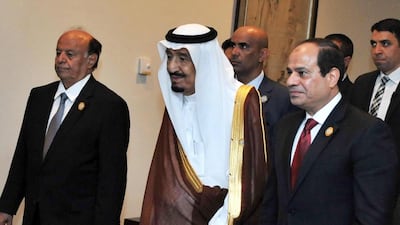When the 2011 uprisings began, there was a particular euphoria that swept through the region and beyond. That sense of elation has been replaced by something murkier and it is not hard to see why.
But just as there was a moment in 2011 that saw a crack in the established order of the Arab world, we are again in the midst of an unfolding new “moment”. The struggle between those two moments remains but there are other tensions at play as well, and this generation of Arabs has much to process in the years ahead.
The sense of rapture that existed in 2011 is over. Some will applaud this but that would be short sighted. At their core, the uprisings were about the autonomy of the Arab citizen, the reassertion of civic responsibility, and a desire for freedom from not only the figure of a dictator, but dictatorial systems. Considering the repression in various countries across the region over many decades, one had to admire those uprisings when they began. They weren’t, despite the revisionist history that is coming into vogue, anarchical movements looking to create chaos or worse. In reality, they were pleading for a better future for their generation, and those to come.
That moment is over but the key drivers that led to it remain. Moreover, those factors exist in more debilitating ways than before, partly because of events in the last four years in the region and due to simple demographics.
There is a new dynamic unfolding. At one level, it is clear that adherents and supporters of the pre-2011 political order were keen to respond, react and reassert themselves. The Arab Spring took them by surprise and while some have rather imaginative ways to ensure their continued survival and relevance, many are simply trying to roll the situation back to the pre-2010 period. But the reality is that’s not possible – when you’ve scrambled the egg, you can’t really put it back together. Something cracked in 2011 and the repercussions of that have not yet been truly dealt with in any country that felt the initial tremor.
Beyond that reaction to demands for autonomy, there are two other dynamics playing out. The first is the anxiety about Iran, not just within the Gulf, but further afield in the Arab world that was not so prominent in 2011. The second is the rise and struggle against ISIL.
Sometimes, some of the different dynamics converge. In Syria, for example, the struggle for Arab autonomy faced huge opposition from the Iranian government, which preferred a friendly regime in Damascus to the empowerment of Syrians. This is also evident in Yemen.
The threat posed by ISIL, a neo-religious phenomenon, is being felt across the region. Sometimes, it is used as an excuse but often it is appropriately recognised as a vital security concern.
As Libya edges closer to the precipice, ISIL continues to be a factor there. In Syria and Iraq, ISIL has been active far longer and there are other countries in the region that have a legitimate security issue when it comes to this group.
This dynamic did not exist in the same way in 2011. The likes of ISIL, with its territorial ambitions, simply wasn’t in play in the Arab world. Within the region, as well as in the capitals of non-Arab countries with an interest in the region, the rise of ISIL has taken up much of the bandwidth that different policy establishments maintain on the Arab world.
But just as 2011’s revolutionary moment passed, so too will these. Eventually, the likes of ISIL will fade, just like other heterodox groups in Muslim history. The attempt to reassert the old autocratic and dictatorial bargain that defined much of the Arab world may give way to other types of rule.
The question isn’t whether these dynamics will change. Of course, they must. The question is when and what will replace them. That becomes particularly important considering the factors that led to the 2011 uprisings remain.
The Arab world erupted in 2011 rather spontaneously. It did so because of the energy bottled up for so long. There is no going back to the pre-2011 scenario in that regard but some administrations can still try to turn back the clock. They will fail, but they can still try, which would be incredibly damaging.
There is an alternative, of course, which is to make it easier and possible for more Arab citizens to have more freedom to provide them with the option to build, as opposed to making them beholden, or oppressing them.
Arab autonomy is not a political rallying cry but a primordial desire and it is not going away. Arab leaders ought to recognise that and if they’re strategic, they’ll realise that they cannot eliminate it.
But they can, if they want to, join it. Unfortunately, right now, it doesn’t seem like enough people in power are willing to give more power to the people and consequently, instability is likely to fester in much of the Arab world for some time to come.
Dr HA Hellyer is an associate fellow of the Royal United Services Institute in London, and the Centre for Middle East Policy at the Brookings Institution in Washington DC
On Twitter @hahellyer


